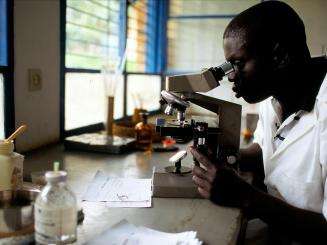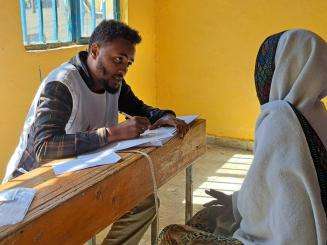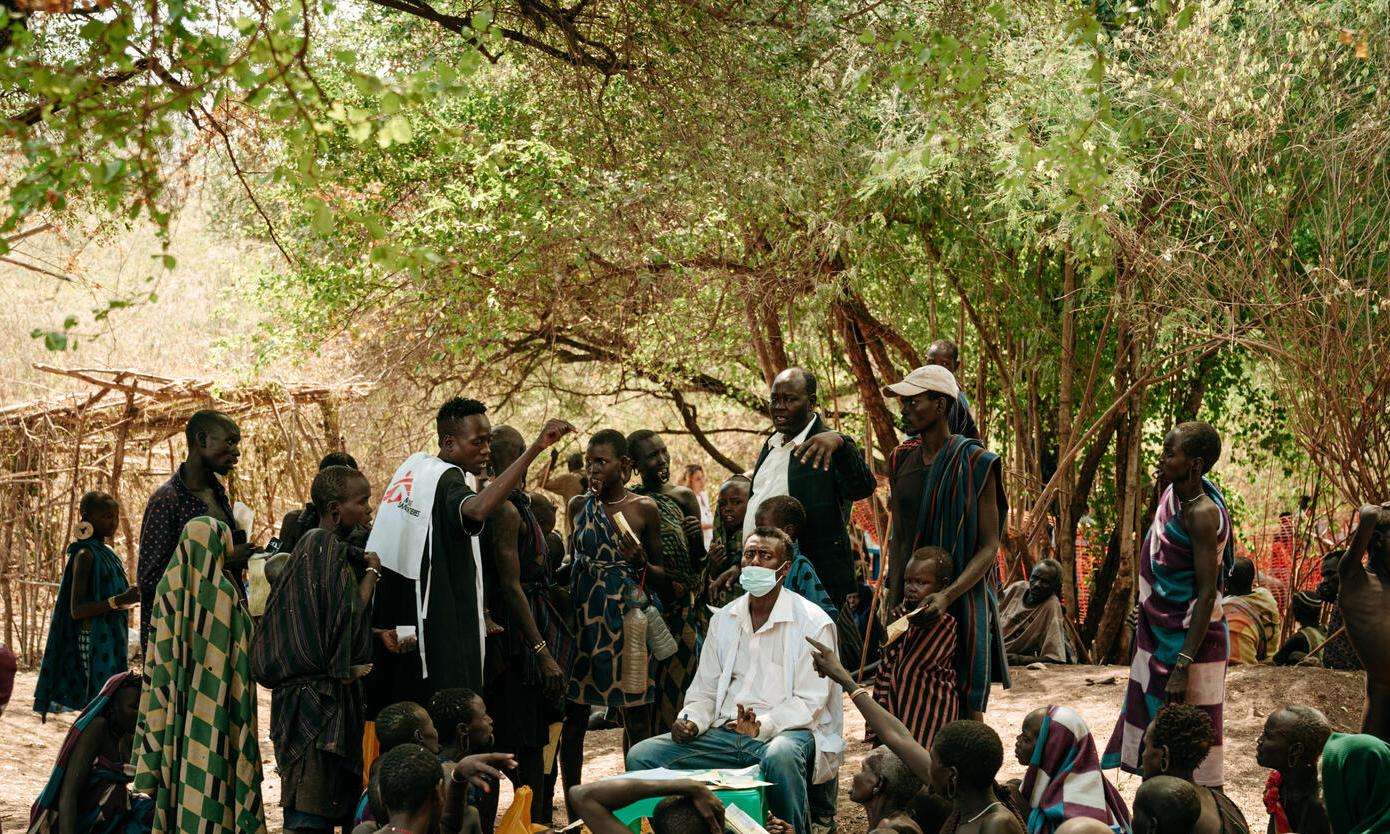In late 2022, a Doctors Without Borders/Médecins Sans Frontières (MSF) team received an alert about an unusually high number of deaths among an isolated group of people living in the Omo Valley, in Ethiopia’s Southern Nations, Nationalities, and People’s Region (SNNPR). The team discovered an outbreak of visceral leishmaniasis, also known as kala azar.
MSF immediately prepared an emergency response, setting up mobile clinics that identified and treated 79 patients suffering from the neglected tropical disease in less than two months.
Kala azar, a parasitic disease transmitted by the bite of infected sand flies, is not only one of the most neglected tropical diseases but also one of deadliest. It has become endemic in many parts of Ethiopia after it was first documented in 1942. More than 3.2 million people across the country are at risk.
“Patients come with a huge swelling of their spleen and liver, a fever, malnutrition and sometimes even bleeding because their bone marrow is affected,” said MSF doctor Hiwot Melak. “It's among the neglected tropical diseases that can cause a 95 percent fatality [rate] if left untreated. So, you can understand the urgency of finding these cases and putting them on treatment.”
One elderly man named Samakaoulu Kumuhuli Data shared that he had lost two wives and five children because of the disease.
Finding patients to provide lifesaving treatment
The cases arose among an isolated group of people from the Mursi tribe living in what is now a national park. The Mursi, a small tribe of around 7,000 people, are one of more than a dozen indigenous groups in Ethiopia’s lower Omo Valley who survive mainly as pastoralists, hunter-gatherers, and farmers. Many of the people MSF treated were seeing a doctor or nurse for the first time, and most had never been vaccinated.
“This is [an] important thing because these people haven't had any medical service previously,” said MSF doctor Tamirat Bantule. “This is the first time most of them—even [people] 60, 70 years old—were coming for a clinic visit. We have also found several malaria cases . . . and a lot of cases with nutritional anemia. We are going to refer them back to the hospital.”
January 30 05:00 PM
MSF calls for more global investment in treating neglected tropical diseases
Neglected tropical diseases affect over one billion people and kill hundreds of thousands each year, despite little global attention.
Read More
When a patient is identified with kala azar, they are referred to the Jinka hospital about fifty kilometers (30 miles) away. But within a few weeks, the capacity of the hospital to treat kala azar was overwhelmed and MSF teams, working alongside staff from the ministry of health, set up tents to provide additional space, eventually running a dedicated kala azar ward within the facility. Despite the complex and painful diagnosis and treatment of the disease, almost all patients treated so far have recovered.
“I decided to take my son to the mobile clinic,” said Bicolshe, a community member. “The doctors referred us to the hospital here. He got treated. At first, I thought he would die but he made it.”
Malnutrition and other infections are also a concern
With a severe drought affecting large parts of Ethiopia for several years, kala azar is not the only life-threatening risk faced that many indigenous groups face as they struggling to survive in the South Omo Valley.
“People still alive will die because of hunger,” warned Samakaoulu Kumuhuli Data during a mobile clinic visit. “There is nothing to eat. Only the wild leaves to eat. This is what makes us worried.”
December 23 11:28 AM
Ethiopia: MSF staff and patients describe enormous health challenges
“Impartiality is at MSF’s core—we treat everybody, regardless of who they are or where they’re from.”
Read More
MSF is also concerned about possible measles and cholera outbreaks among people that have missed out on routine vaccinations. Our teams have extended active case finding and primary health care services provided through mobile clinics to various parts of the southern Omo Valley while continuing to increase the capacity to diagnose and treat kala azar at the Jinka hospital.
On June 24, 2021, our colleagues Tedros Gebremariam Gebremichael, María Hernández Matas, and Yohannes Halefom Reda were brutally and intentionally killed while clearly identified as humanitarian workers in Tigray. After extensive engagement with the Ethiopian authorities, we still do not have any credible answers on what happened to our colleagues that day. MSF will keep pursuing accountability for this incident by using all possible means and avenues, in hopes that this will improve the safety of humanitarian workers in Ethiopia.
MSF has been working in Ethiopia for 37 years, providing medical assistance to people affected by conflict, epidemics, disasters or limited access to health care in collaboration with Ethiopian authorities at local, regional and national levels. We have been providing kala azar care for more than 20 years, including our dedicated kala azar and snake bite project in Abdurafi, Amhara, and through emergency interventions. All our activities are guided by humanitarian principles of humanity, independence, neutrality and impartiality.
How you can help
Not everyone can treat patients in the field. But everyone can do something.
Some humanitarian crises make the headlines—others don’t. Unrestricted support from our donors allows us to mobilize quickly and efficiently to provide lifesaving medical care to the people who need it most, whether those needs are in the spotlight or not. And your donation is 100 percent tax-deductible.




